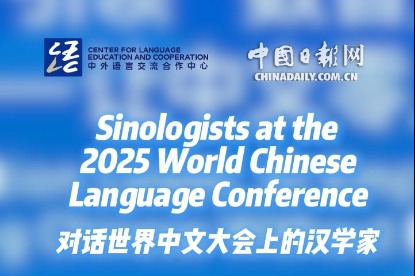Tokyo's empty rhetoric doesn't hold water: China Daily editorial

Japanese Prime Minister Sanae Takaichi's refusal to retract her erroneous remarks on the Taiwan question, together with Tokyo's accelerating military buildup near China's doorstep, threatens to push China-Japan relations to a dangerous inflection point.
By linking the Taiwan question to a "survival-threatening situation" and implying the possibility of Japan's armed intervention in the Taiwan Strait, Tokyo has not only touched China's red line but also shaken the political foundation of bilateral relations.
Takaichi's remarks encapsulate a policy orientation that contradicts the solemn commitments the Japanese government has made regarding the Taiwan question in the four political documents between China and Japan, which leave no room for ambiguity or misinterpretation.
As Chinese Foreign Minister Wang Yi emphasized on Sunday, if Japan persists in its own way and keeps making the same mistakes, all countries and people who advocate justice have the right to reexamine Japan's historical crimes and the responsibility to resolutely prevent the resurgence of Japanese militarism.
Recent developments have reinforced the gravity of the situation. Japan's Defense Minister Shinjiro Koizumi has announced that Tokyo will proceed with the deployment of intermediate-range missiles on Yonaguni Island — barely 110 kilometers from China's Taiwan region — and the rapid expansion of Japan Self-Defense Forces' facilities across the Ryukyu Islands.
These moves, as Chinese Foreign Ministry spokeswoman Mao Ning said on Monday, are a deliberate attempt to create regional tension and provoke military confrontation. They come alongside Japan's first export of lethal weapons since the relaxation of arms export rules and renewed discussions within the Liberal Democratic Party on revising the three non-nuclear principles upheld by Japan and further increasing its defense spending.
The Potsdam Declaration clearly prohibits Japan from rearming and Japan's pacifist Constitution establishes the exclusive defense-oriented principle. High vigilance from the international community is imperative given Tokyo's obvious intent to brush this principle aside.
The moves Japan has taken since Takaichi took office last month all demonstrate Japan is trying to break free from the bounds imposed on it by the postwar arrangement that sought to prevent a repeat of its aggression. The international community therefore has every reason to ask — what exactly is Japan seeking to achieve?
China has noted Japan mentioning its "consistent position" on the Taiwan question, but as the Foreign Ministry spokeswoman asked, what exactly is this so-called "consistent position"? Can Japan fully and publicly articulate it? If Japan merely reiterates the concept of "an unchanged position", while remaining vague about its specific content and constantly overstepping its boundaries with its actions, then such reiteration is empty rhetoric.
Sino-Japanese relations cannot be built on ambiguity, provocation or historical amnesia, which would only become a prelude to repeated history.
The historical parallel is chilling. The use of pretexts such as "survival-threatening situation" has been a recurring tactic of Japanese militarism — from its 1931 invasion of Northeast China to the expansion of its aggression across Asia and the attack on Pearl Harbor. As the Chinese nation marks the 80th anniversary of the victory in the Chinese People's War of Resistance Against Japanese Aggression (1931-45) and the World Anti-Fascist War, the alarm cannot be ignored. It seems the only thing the Takaichi government learns from history is that it learns nothing from history.
Japan's current stance also tramples on historical facts. For half a century, Japan forcibly occupied China's Taiwan island, inflicting enormous suffering on the local population. Taiwan's restoration to China is explicitly affirmed in the Cairo Declaration, the Potsdam Proclamation and the Japanese Instrument of Surrender. Taiwan is China's inalienable territory — this is not only a matter of sovereignty but also an integral part of the postwar international order. Japan is the least qualified to make irresponsible remarks on Taiwan, and any attempt to interfere will not be tolerated.
The consequences of Japan's wrongful words and deeds are already emerging. The Chinese people's outrage is real, and it is affecting bilateral exchanges — from declining tourist flows and canceled flights to a reduced market for Japanese products. These are the natural results of public indignation toward provocations that harm China's core interests.
If Japan truly wants "constructive and stable ties" with China as Tokyo claims, the Takaichi government must first retract the erroneous remarks, take earnest steps to honor its commitments, and stop crossing China's red line on the Taiwan question. Merely asserting that its position has not changed while acting in direct contradiction to that claim will only escalate tensions.

































